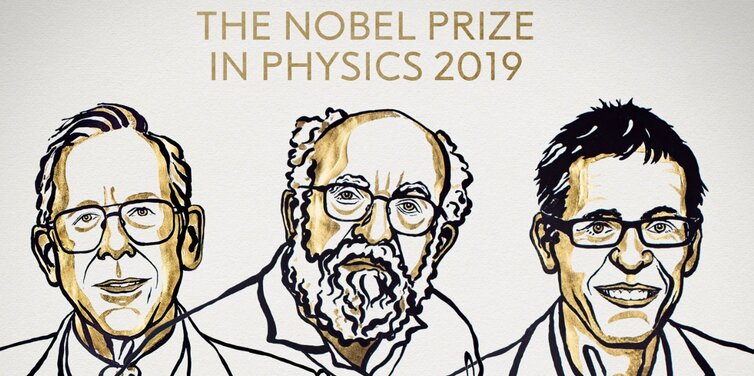
2019 Nobel Prize in Physics: Cosmic Theorist and the Exoplanet Hunters
A Canadian American cosmologist and two Swiss scientists were awarded the 2019 Nobel Prize for Physics on Tuesday, for their research that brought us one step closer to cosmic facts, even though they cannot provide definite answers to universal questions.
The Canadian cosmologist James Peebles of Princeton University will receive half of the 9 million Swedish crowns for his “theoretical discoveries in physical cosmology.”
Theoretical estimations of Peebles paved the way for cosmologists to interpret the cosmic microwave background radiation, the leftover radiation from the birth of the universe 13.8 billion years ago. Peebles’ work is an in-depth theoretical look at the current state of the universe, into time, and into space filled with dark matter and dark energy that we often cannot see. What is remarkable is that this is the first Nobel Prize given to a purely theoretical cosmological study instead of something observable.
The other half will be shared between two Swiss astronomers, Michel Mayor of the University of Geneva, and Didier Queloz of the Universities of Geneva and Cambridge, for “the discovery of an exoplanet orbiting of a solar-type star.” Astrophysicist Mayor and astronomer Queloz found the first exoplanet around a Sun-like star outside our system, leading astronomers to start investigating the possibilities of life elsewhere in the universe more seriously.
Mayor and Queloz made a revolution in astronomy when they discovered 51 Pegasi B, a Jupiter-like gas giant, in 1995, at a time when no one knew about the existence of exoplanets.
Since that discovery, more than 4,000 exoplanets have been discovered in the Milky Way, and much more is expected to be discovered in the coming years. In addition to providing astronomers new insights about how our Solar System and its planets formed and evolved, outer planet research can also give the final answer to the question of whether we are alone in the universe.
The cash prize comes with a gold medal and a diploma, and is presented to the Nobel Prize winners at an elegant ceremony in Stockholm held annually on December 10th, the anniversary of the death of Alfred Nobel in 1896. The sixth Nobel Peace Prize will be given in Oslo, Norway on the same day.
REFERENCES
- 1. https://phys.org/news/2019-10-cosmic-theorist-planet-hunters-physics-prize.html
- 2. https://phys.org/news/2019-10-nobel-prize-tackled-cosmic-query.html
